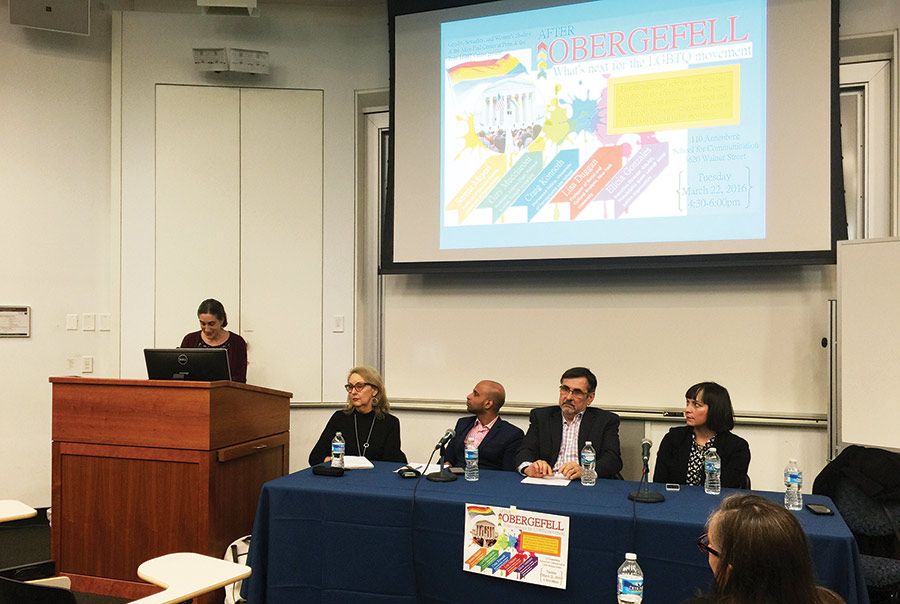As the only activist on a five-person panel to discuss movement priorities in the wake of marriage equality, Elicia Gonzales kept her talk locally focused on homelessness among LGBT youth. She said some youth told her they’d rather engage in sex work for survival than face discrimination in shelters or foster care.
“It’s a really complex issue when you’re talking about gay marriage as a success when that success comes on the backs of people who are still disproportionately impacted by poverty and injustice to this day,” said Gonzales, former executive director of GALAEI: A Queer Latin@ Social Justice Organization. “There was some time that people who were really fighting hard for gay marriage were kind of stepping on the rights of trans women, and trans women of color, so that they could advance marriage.”
Gonzales suggested a peer outreach program run by queer youth for queer youth, improved support systems in short-term shelters for queer youth and sensitivity training for veterans of the police force, not just new cadets.
Four other academics and 20 audience members joined the 90-minute discussion called “After Obergefell: What’s Next for the LGBTQ Movement,” held March 22 by Gender, Sexuality and Women’s Studies at the University of Pennsylvania. It yielded no fewer than a dozen suggested priorities with recurrences around the ideas of building alliances with other social-justice groups and pushing for LGBT rights internationally.
The other speakers included Craig Konnoth from the University of Pennsylvania Law School; Gary Mucciaroni, interim chair of political science at Temple University; and Lisa Duggan, associate professor of history and American studies at New York University. Serena Mayeri, professor of law and history at Penn, moderated the discussion.
Duggan shared Gonzales’ complex view of marriage equality. She said it did not seem like the issue most worth fighting for because it does not impact the whole community. There are LGBT people who don’t want to marry, she said.
“Many of us would’ve preferred a ruling more explicitly based on principals of, say, sex discrimination, sexual-orientation discrimination or even sexual freedom,” Duggan said, “and a ruling that would’ve applied more obviously to discrimination against LGBTQ Americans in areas beyond marriage.”
Responding to a question about legal benefits for polyamorous relationships, she added: “Why did any of us ever ask the state to recognize our love and sexual practice?
“What we need recognition for is material relations,” Duggan added, ticking off recognition for child dependency on parents, people with economic relationships in a shared household and next-of-kin medical access.
“You should be asking for the economic system and the tax system to recognize the interdependencies we have,” she continued. “The inclusive thing is to say it doesn’t matter about your identity or your sex or your love. It matters who you own a house with, who you have children with, and those might all be different people.”
Mucciaroni said it made sense to pursue marriage equality. Among other things, it worked symbolically to disavow discrimination.
“The state is the community,” he said.
Konnoth focused on the future of litigating for LGBT rights.
In what he called the “affirmative posture,” Konnoth said it bodes well that organizations like Lambda Legal have begun filing amicus briefs in court cases regarding the Affordable Care Act, immigration and racial justice. The broad social-justice work engenders allies, he said. It also avoids a single-issue focus that can stagnate a movement. He added work would be needed to secure affordability of HIV drugs and Medicaid coverage for gender-confirmation surgery.
Konnoth said matters requiring a “defensive posture” include pushing back against those who would like to interpret the 1993 Religious Freedom Restoration Act to mean people can discriminate against LGBT folks because of a religious belief.
